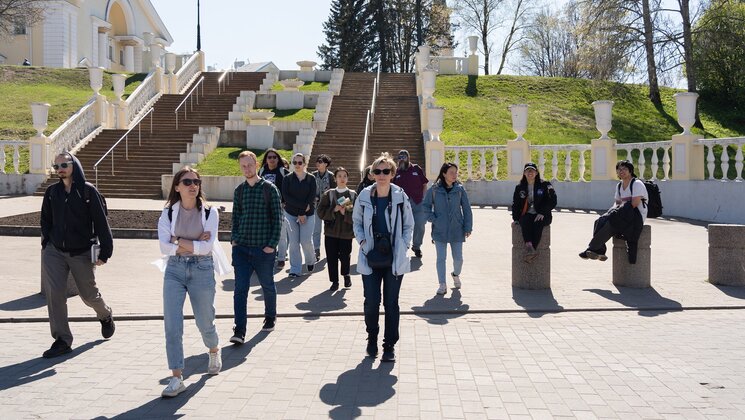-
Faculty of Arts and HumanitiesJakobi 2, r 116-121 51005 Tartu linn, Tartu linn, Tartumaa ESTJakobi 2 51005 Tartu linn, Tartu linn, Tartumaa ESTJakobi 2, IV korrus 51005 Tartu linn, Tartu linn, Tartumaa ESTJakobi 2, III korrus, ruumid 302-337 51005 Tartu linn, Tartu linn, Tartumaa ESTÜlikooli 16 51003 Tartu linn, Tartu linn, Tartumaa ESTLossi 3 51003 Tartu linn, Tartu linn, Tartumaa ESTÜlikooli 18 50090 Tartu linn, Tartu linn, Tartumaa ESTPosti 1 71004 Viljandi linn, Viljandimaa ESTJakobi 2 51005 Tartu linn, Tartu linn, Tartumaa ESTJakobi 2 51005 Tartu linn, Tartu linn, Tartumaa ESTFaculty of Social SciencesLossi 36 51003 Tartu linn, Tartu linn, Tartumaa ESTJakobi 5 51005 Tartu linn, Tartu linn, Tartumaa ESTLossi 36, ruum 301 51003 Tartu linn, Tartu linn, Tartumaa ESTNarva mnt 18 51009 Tartu linn, Tartu linn, Tartumaa ESTNäituse 2 50409 Tartu linn, Tartu linn, Tartumaa ESTNäituse 20 - 324 50409 Tartu linn, Tartu linn, Tartumaa ESTLossi 36 51003 Tartu linn, Tartu linn, Tartumaa ESTRaekoja plats 2 20307 Narva linn, Ida-Virumaa ESTRingi 35 80012 Pärnu linn, Pärnu linn, Pärnumaa ESTLossi 36 51003 Tartu linn, Tartu linn, Tartumaa ESTLossi 36 51003 Tartu linn, Tartu linn, Tartumaa ESTFaculty of MedicineRavila 19 50411 Tartu linn, Tartu linn, Tartumaa ESTBiomeedikum, Ravila 19 50411 Tartu linn, Tartu linn, Tartumaa ESTNooruse 1 50411 Tartu linn, Tartu linn, Tartumaa ESTL. Puusepa 1a 50406 Tartu linn, Tartu linn, Tartumaa ESTL. Puusepa 8 50406 Tartu linn, Tartu linn, Tartumaa ESTRavila 19 50411 Tartu linn, Tartu linn, Tartumaa ESTUjula 4 51008 Tartu linn, Tartu linn, Tartumaa ESTRavila 50411 Tartu linn, Tartu linn, Tartumaa ESTRavila 19 50411 Tartu linn, Tartu linn, Tartumaa ESTFaculty of Science and TechnologyVanemuise 46 - 208 51003 Tartu linn, Tartu linn, Tartumaa ESTNarva mnt 18 51009 Tartu linn, Tartu linn, Tartumaa ESTRiia 23b/2 51010 Tartu linn, Tartu linn, Tartumaa ESTRavila 14a 50411 Tartu linn, Tartu linn, Tartumaa ESTNarva mnt 18 51009 Tartu linn, Tartu linn, Tartumaa ESTRiia 23, 23b - 134 51010 Tartu linn, Tartu linn, Tartumaa ESTObservatooriumi 1 61602 Tõravere alevik, Nõo vald, Tartumaa ESTNooruse 1 50411 Tartu linn, Tartu linn, Tartumaa ESTJ. Liivi tn 2 50409 Tartu linn, Tartu linn, Tartumaa ESTVanemuise 46 51003 Tartu linn, Tartu linn, Tartumaa ESTVanemuise 46 51003 Tartu linn, Tartu linn, Tartumaa ESTArea of Academic SecretaryLossi 3 51003 Tartu linn, Tartu linn, Tartumaa ESTUppsala 6, Lossi 36 51003 Tartu linn, Tartu linn, Tartumaa ESTArea of Head of FinanceÜlikooli 17 51005 Tartu linn, Tartu linn, Tartumaa ESTArea of Director of AdministrationÜlikooli 18A (III korrus) 51005 Tartu linn, Tartu linn, Tartumaa ESTÜlikooli 18, ruumid 102, 104, 209, 210 50090 Tartu linn, Tartu linn, Tartumaa ESTArea of Vice Rector for ResearchW. Struve 1 50091 Tartu linn, Tartu linn, Tartumaa ESTArea of Vice Rector for DevelopmentNarva mnt 18 51009 Tartu linn, Tartu linn, Tartumaa ESTVanemuise 46 51003 Tartu linn, Tartu linn, Tartumaa ESTLossi 25 51003 Tartu linn, Tartu linn, Tartumaa ESTArea of RectorArea of Vice Rector for Academic AffairsUppsala 10 51003 Tartu linn, Tartu linn, Tartumaa ESTÜlikooli 18b 51005 Tartu linn, Tartu linn, Tartumaa EST
Join the LIVIND research webinar on December 17
What does it mean to put the 2030 Agenda for Sustainable Development into practice - nationally and locally, in the field of living heritage?
During the upcoming webinar the UNESCO Chair presents the findings of our work in the LIVIND project (2021-2024).
When: December 17, at 2 - 4 pm (EET)
Registration: by December 12 (to participate or to receive the recording afterwards)
14.00 Welcome, Leena Marsio, Finnish Heritage Agency
14.05 Foreword, Maija Lummepuro, Ministry of Education and Culture, Finland
14.15 LIVIND project – short overview, Elisa Kraatari, project coordinator
14.25 Living Heritage and Sustainable Development – an emerging research area, Kristin Kuutma, University of Tartu, UNESCO Chair
14.50 Approaches at the state level – periodic reports to UNESCO, Anita Vaivade/Agnese Karlsone, Latvian Academy of Culture, UNESCO Chair
15.05 Challenges and Solutions at the local level – experiences from the LIVIND pilots, Siarhiej Makarevich, University of Tartu, UNESCO Chair
15.30 Commentary, Harriet Deacon, researcher, UNESCO facilitator
15.45 Questions and Discussion
In 2021-2024, the UNESCO Chair on Applied Studies of Intangible Cultural Heritage led the research team of the LIVIND project (LIVIND – Creative and Living Cultural Heritage as a Resource for the Northern Dimension Region).
The aim was to analyse how creative and living cultural heritage and sustainable development interlink, examine past experiences and best practices, and contribute to the planning and implementation of the project activities. We worked together with the UNESCO Chair on Intangible Cultural Heritage Policy and Law (Latvian Academy of Culture, Latvia).
The results are summarised in a research paper addressing the prevailing connection between creative and living cultural heritage and sustainable development in the Northern Dimension Region on the policy level, through research, and through concrete actions on the ground. The policy brief elaborates on possible ways to strengthen this interlinkage in the future. See here for full documents.
LIVIND – Creative and Living Cultural Heritage as a Resource for the Northern Dimension Region, was a project led by the Finnish Heritage Agency and implemented in 2021-2024. The project aimed to identify and develop policies to strengthen the potential of creative and living cultural heritage to support sustainable development. It brought together stakeholders from public administration, civil society, and the private sector from nine countries in the Northern Dimension Region (Denmark (including Greenland and Faroe Islands), Estonia, Finland (including Åland Islands), Iceland, Latvia, Lithuania, Norway, Poland, and Sweden), being the first of its kind in Northern Europe. Webpage.
See also the homepage and Facebook page of the UNESCO Chair on Applied Studies of Intangible Cultural Heritage.
Read more similar news





